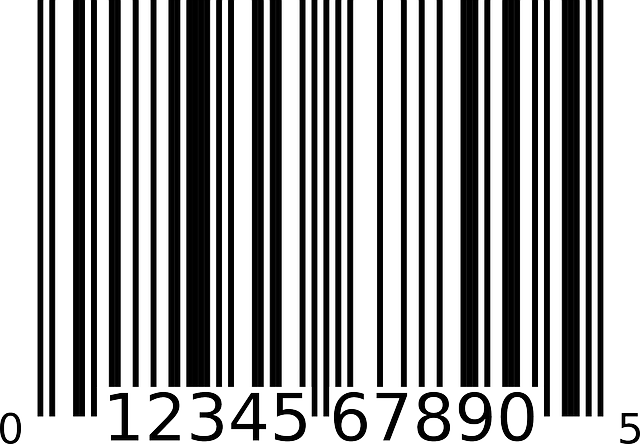The translation of the UK Code of Conduct and Ethics is a critical task for multinational companies with diverse workforces. To ensure that the ethical principles and values embedded in this code are accurately conveyed to employees worldwide, organizations must engage specialized UK Code of Conduct and Ethics translation services. These services should be staffed by experts who are not only linguistically proficient but also understand the cultural nuances and business ethics on a global scale. By using translators with expertise in legal and corporate language, companies can adapt the code to resonate with local employees while adhering to cultural norms and regulatory requirements of different regions. This approach ensures that the translated code maintains the original ethical integrity, fostering mutual understanding, respect, and trust across all operational units of the company, thereby upholding global business standards of integrity and compliance.
In an era where businesses operate on a global scale, the effectiveness of corporate ethics codes hinges on their clarity and accessibility across diverse cultures and languages. This article delves into the transformation of the UK Code of Conduct and Ethics through professional translation services, ensuring that its core principles are understood and adhered to by employees worldwide. We explore the critical role these translations play in maintaining ethical standards across international borders, and how they can enhance compliance and foster a culture of integrity within multinational corporations. Join us as we navigate the nuances of accurately conveying corporate ethics through translation, providing insights and strategies that are indispensable for any company aiming to uphold its ethical standards universally.
- Navigating Corporate Ethics: The Significance of Translated Codes in Global Business
- Understanding the UK Code of Conduct and Ethics: A Comprehensive Overview
- The Role of Professional Translation Services in Code Localization
- Key Elements of the UK Code of Conduct and Ethics: Core Principles Unveiled
- Cross-Cultural Considerations in Translating Corporate Ethics Codes
- Enhancing Employee Compliance: The Impact of Multilingual Communication
- Case Study: Successful Translation of the UK Code of Conduct and Ethics
- Strategies for Effective Translation and Localization of Business Ethics Documents
- Choosing the Right Translation Services Provider for Your Corporate Codes of Ethics
Navigating Corporate Ethics: The Significance of Translated Codes in Global Business

In today’s globalized business landscape, the UK Code of Conduct and Ethics stands as a beacon for transparent and ethical practices. As organisations expand their reach beyond national borders, the necessity to communicate corporate ethics to diverse workforces becomes paramount. Translated codes of conduct are not just a matter of linguistic accuracy; they are critical for ensuring that all employees, regardless of their native language, understand the ethical standards and values that define the company’s culture. This is where UK Code of Conduct and Ethics translation services play an indispensable role. They facilitate clear, coherent, and contextually appropriate translations that resonate with employees across different regions, fostering a unified approach to corporate governance and ethical decision-making. By breaking down language barriers, these services enable global teams to navigate the complexities of cross-cultural business with confidence, adhering to universal principles while respecting local nuances. This not only safeguards the integrity of the company but also enhances its reputation as a responsible entity that values inclusivity and diversity. In essence, the use of professional translation services for the UK Code of Conduct and Ethics is a strategic investment in global corporate governance, ensuring that ethical standards are upheld across all operations, thereby fostering trust, consistency, and a strong moral foundation for international business endeavours.
Understanding the UK Code of Conduct and Ethics: A Comprehensive Overview

To effectively communicate and uphold high ethical standards within a multinational corporation with diverse stakeholders, it is imperative to translate the UK Code of Conduct and Ethics into languages that all employees can understand. This ensures that every individual, regardless of their linguistic background, is aware of the company’s expectations and values. Translation services specialising in such documents are crucial for accuracy and cultural relevance, avoiding misunderstandings or misinterpretations that could arise from literal translations. These services not only facilitate compliance but also promote a culture of integrity and accountability across all business operations globally. By providing a clear and accessible version of the UK Code of Conduct and Ethics, companies can expect to foster trust and respect among their workforce, leading to enhanced corporate governance and a more cohesive organisational environment. Moreover, the availability of translated codes supports ethical decision-making processes, aligning employee actions with company policies, thus mitigating legal and reputational risks associated with ethical breaches. Incorporating translation services into the dissemination of the UK Code of Conduct and Ethics is a strategic move that underscores a company’s commitment to ethical practices and transparency on a global scale.
The Role of Professional Translation Services in Code Localization

In an increasingly globalized business environment, the UK Code of Conduct and Ethics serves as a critical framework for guiding organizational behavior and ensuring ethical practices across all operations. To effectively extend this framework to diverse international teams, professional translation services play a pivotal role. These services specialize in converting the original text into accurately localized versions that retain the nuances and cultural relevance of the source material. The process involves more than mere linguistic conversion; it encompasses a deep understanding of cultural nuances, legal requirements, and ethical standards within different regions. This ensures that the principles outlined in the UK Code of Conduct and Ethics resonate with employees worldwide, fostering a consistent and cohesive ethical culture across the organization’s global footprint.
Employing professional translation services for the localization of the UK Code of Conduct and Ethics is not merely about language equivalence; it’s about creating a shared understanding of values and expectations. These services leverage expert linguists who are often accompanied by subject matter experts in ethics and compliance. This dual expertise guarantees that the translated codes are not only linguistically correct but also culturally appropriate and contextually relevant. Such precision is paramount to uphold the integrity of the original code, thereby enhancing global communication and reinforcing ethical standards across all company operations.
Key Elements of the UK Code of Conduct and Ethics: Core Principles Unveiled

In the United Kingdom, the Code of Conduct and Ethics serves as a cornerstone for promoting integrity, accountability, and ethical behavior within corporate entities. It provides a framework that guides businesses in their decision-making processes and interactions with stakeholders. Central to this code are principles such as honesty, fairness, and respect for both the law and individuals. These core values are not only essential for fostering trust among consumers and investors but also for maintaining a healthy business environment. Companies adhering to the UK Code of Conduct and Ethics are expected to ensure that their conduct is beyond reproach and that they operate transparently. To facilitate global understanding and compliance, translation services play a pivotal role in converting the code into various languages, making it accessible to diverse workforces and international partners. This translation ensures that the principles and expectations outlined in the UK Code of Conduct and Ethics are universally understood, thereby enhancing communication across borders and cultural divides.
The effectiveness of the UK Code of Conduct and Ethics is amplified through its translation into multiple languages by professional translation services. This not only aids multinational companies with operations in different countries but also small to medium-sized enterprises seeking to expand their global reach. The translated code enables organizations to communicate their commitment to ethical practices and to ensure that all employees, regardless of their language proficiency, are aware of the expected standards of behavior. This universal understanding is crucial for upholding a consistent corporate culture and for aligning with the legal requirements of each jurisdiction in which the company operates. The translation process thus becomes an integral part of a company’s ethical framework, ensuring that the values embedded within the UK Code of Conduct and Ethics are universally embraced and acted upon.
Cross-Cultural Considerations in Translating Corporate Ethics Codes

To effectively communicate a company’s ethical standards across diverse cultural landscapes, it is imperative to engage with professional translation services that specialize in such nuanced content. The UK Code of Conduct and Ethics, for instance, when translated into other languages, must consider the cultural context, business practices, and legal frameworks relevant to each target audience. This process goes beyond mere linguistic equivalence; it involves a deep understanding of cultural norms, ethical expectations, and regional regulations that govern professional conduct. Translators must navigate these complexities to ensure that the core values and principles of the original code are preserved and accurately conveyed, thereby fostering a sense of global accountability and ethical alignment within the company’s international operations.
Furthermore, the translated ethics codes should be reviewed by subject matter experts familiar with both the source and target cultures to guarantee that the translated content aligns with local business practices and legal requirements. This multidisciplinary approach is crucial in avoiding misunderstandings or misinterpretations that could arise from cultural differences or language nuances. Utilizing UK Code of Conduct and Ethics translation services that offer this level of expertise ensures that companies can uphold their ethical standards globally, thereby promoting trust, integrity, and consistency across all business operations.
Enhancing Employee Compliance: The Impact of Multilingual Communication

In today’s globalised business environment, ensuring that every employee across diverse locations fully understands and complies with the UK Code of Conduct and Ethics is not just a legal necessity but a cornerstone of corporate integrity. The translation of corporate codes into multiple languages by specialised UK Code of Conduct and Ethics translation services plays a pivotal role in this regard. By making these documents accessible in the native tongues of all staff members, companies can bridge language barriers that might otherwise lead to misunderstandings or non-compliance. This multilingual approach not only demonstrates respect for cultural diversity but also ensures that ethical standards are consistently upheld. Employees who receive instructions and guidelines in their preferred language are more likely to adhere to the code, as it minimises the risk of misinterpretation and fosters a transparent work environment. Consequently, businesses that leverage professional translation services can expect to see an enhanced level of compliance with ethical standards, leading to a more trustworthy and reputable organisation image on a global scale.
Furthermore, the impact of effective multilingual communication extends beyond mere compliance. It fosters a sense of inclusivity and belonging among employees, which is crucial for maintaining high morale and productivity levels. When employees understand the ethical expectations of their roles, they are more empowered to act in alignment with company values, thereby contributing to a positive corporate culture. The use of UK Code of Conduct and Ethics translation services thus not only ensures legal conformity but also supports the cultivation of an ethical corporate climate that is inclusive and conducive to responsible business practices. This underscores the importance of clear, accessible communication across all levels of an organisation, particularly in multinational corporations where a diverse workforce is the norm.
Case Study: Successful Translation of the UK Code of Conduct and Ethics

In an era where global expansion is paramount for corporate growth, the UK Code of Conduct and Ethics serves as a cornerstone for business integrity and compliance. When a multinational corporation with operations in diverse regions seeks to integrate this code, translation services that specialize in legal and ethical documents become crucial. A case study exemplifying the successful translation of the UK Code of Conduct and Ethics into multiple languages was undertaken by a leading global firm. The challenge lay in conveying the nuanced principles and values embedded within the code to employees across various countries, each with its own cultural context and business environment. By employing expert UK Code of Conduct and Ethics translation services, the corporation managed to bridge cultural divides, ensuring that the ethical standards were not only understood but also embraced by a workforce spanning continents. This process involved meticulous attention to detail, with translators who were not only linguistically proficient but also well-versed in corporate governance and ethics. The outcome was a set of translated documents that maintained the integrity of the original text while resonating with local employees. This initiative not only facilitated a cohesive ethical framework across international borders but also reinforced the company’s commitment to ethical conduct on a global scale. As a result, the corporation enhanced its reputation as an entity upholding high moral standards and set a precedent for effective communication in a multicultural corporate environment.
Strategies for Effective Translation and Localization of Business Ethics Documents

When businesses operate across different regions, it is imperative to ensure that their corporate codes of ethics are effectively communicated to all employees, regardless of their linguistic background. The UK Code of Conduct and Ethics serves as a guiding principle for ethical behavior within organizations, and its translation into multiple languages is a critical step in inclusive communication. To achieve this, companies should employ strategies that prioritize both the accuracy and cultural relevance of translations.
Effective translation and localization require a deep understanding of not only the linguistic nuances but also the cultural contexts of the target audience. Utilizing professional UK Code of Conduct and Ethics translation services that specialize in business ethics documentation is essential for conveying the original meaning and intent without compromising on values or integrity. These services often employ native speakers with expertise in corporate communication, ensuring that the translated text resonates with local employees and aligns with their cultural norms. Additionally, a collaborative approach involving input from stakeholders within different regions can further refine the translation to ensure it is both accurate and relatable. By adopting these strategies, businesses can foster a global culture of ethics that is underpinned by mutual understanding and respect across all operational units.
Choosing the Right Translation Services Provider for Your Corporate Codes of Ethics

When translating corporate codes of ethics, precision and cultural sensitivity are paramount to maintain the integrity of the original content. The UK Code of Conduct and Ethics, being a critical document that defines an organization’s ethical standards, requires a translation services provider with a deep understanding of both the source and target languages, as well as the cultural nuances that govern business conduct in different regions. Businesses looking for reliable UK Code of Conduct and Ethics translation services should prioritize providers with expertise in legal and corporate language, ensuring they can accurately convey complex concepts and ethical considerations. It is essential to select a provider with a proven track record in handling sensitive documents, one that offers industry-specific translators who are not only linguistically proficient but also familiar with the regulatory environment of each market where the translated code will be applied. This ensures that the translated document is both legally and culturally appropriate for the intended audience, thereby upholding the organization’s commitment to ethical standards across borders. Additionally, consider a provider that offers a combination of human expertise and advanced translation technology to ensure consistency, accuracy, and efficiency in the translation process. With the right translation services partner, organizations can confidently communicate their ethics codes to global stakeholders, thereby fostering trust and compliance on an international scale.
In conclusion, the importance of translating the UK Code of Conduct and Ethics into multiple languages cannot be overstated for global businesses. By leveraging specialized translation services, companies can ensure their ethical guidelines are accurately conveyed across diverse cultures, thereby fostering a shared understanding of corporate values among employees worldwide. The meticulous approach outlined in this article—from core principles unveiling to cross-cultural nuances and compliance enhancements—serves as a roadmap for organizations seeking to navigate the complexities of global communication. Embracing multilingual ethics codes not only promotes transparency and trust but also aligns with the evolving landscape of international business. Businesses that prioritize such translations position themselves to operate with integrity across borders, ultimately contributing to a more ethical global marketplace.



